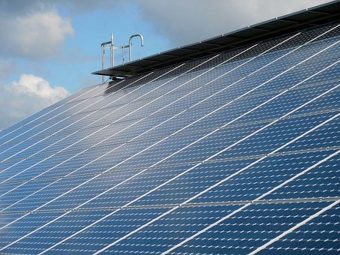
Victorians with solar panels will be compensated for reducing greenhouse gas emissions in a planned reward scheme set to increase power costs for other households.
Tens of thousands of rooftop solar homes on minimum feed-in tariffs will reap more generous payments, including a new environment benefit bonus, for generating surplus electricity fed back into the grid.
Australian Energy Council chief Matthew Warren warned non-solar households that had already forked out for overly generous subsidies for a decade, would be further penalised.
Energy Minister Lily D’Ambrosio said the planned changes from July next year would allow renewable energy feed-in tariffs to be set in a fairer way, and reward “environmental value”.
“Victorians should be fairly compensated for the power they generate — plain and simple,” Ms D’Ambrosio said.
Opposition energy spokesman David Southwick said it was effectively a green tax, with retailers tipped to pass on millions of dollars in higher costs to other consumers.
The current 5c per kilowatt hour minimum feed-in tariff for 60,000 homes will be replaced with an average 6.5c-7c per kWh payment, earning them an estimated average $17 extra a year.
The flat rate will switch to a time-of-use system so retailers potentially pay up to 8c per kWh for excess power generated during the 3pm-9pm peak, and less at off-peak times.
“This is the first time the tariff has been increased in the last six years, rising by approximately 20 per cent,” Ms D’Ambrosio said.
The Government estimates the system will cost non-solar households about $2.50 each annually.
The Opposition’s Mr Southwick said: “It’s pretty much a new environment tax that will be subsidising a very small proportion of the community at the expense of those without solar panels.
“This comes at a time when Victorians are threatened with higher electricity prices in anticipation of the Hazelwood power station closure.”
The Essential Services Commission will determine actual rates in February next year.
About 90,000 premium 60c feed-in tariff customers retain that rate until 2024. Another 70,000 on standard and transitional tariffs will have payments dramatically cut when their schemes soon expire.
Solar Citizens consumer campaigner Reece Turner said solar energy ultimately pushed down electricity costs for the entire community, as less money needed to be spent on expensive poles and wires.
Source: heraldsun.com.au



